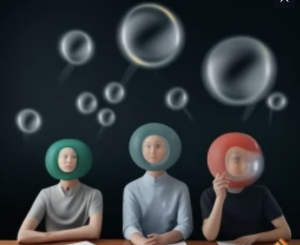Is there anything one can read these days that isn’t about neruoscience? Could there be anything left to scan in the MRI tube? Those parts of life that used to be considered emotional, experiential, sensorial, or just plain mysterious are now being figured out and cerebral-ized by brain scientists. Neuroscience claims to have cracked the code on love, romance, sexuality, homosexuality, attachment, creativity, courage, happiness, grief, conscience, intuition, morality, appetite, being, and of course, God.
Neuroplasticity, neural networks, neurotransmitters, neurochemicals, neural cortexes, synaptic reactions, the amygdala, the cerebral cortex, bi-naural beats, brain waves… these are the words we now hear when discussing life. Science has officially kidnapped the human experience.
A few examples: neuroscience has now proven that meditation leads to increased gray matter in the brain, and thus to better learning and memory. Also, that meditation increases the part of the brain that produces feelings of love, compassion and forgiveness. Love, on the other hand, has been scientifically shown to produce the hormone dopamine, which creates pleasure, and also stimulate norepinephrine, which raises blood pressure and heart rate. In addition, love lowers serotonin, the chemical associated with feeling in control, and thus we now know that instability and anxiety are neurologically induced by love. In another laboratory, scientists demonstrated that courage is created when the prefrontal region called the subgenual cingulate cortex is activated, thereby dampening bodily-related responses to fear. Name the experience, we can now prove that it exists biologically, how it exists and why it exists.
I have been meditating for many years. I know, from my own experience, that the practice makes me feel more compassionate, spacious, grounded and present. I’ve also fallen in love. I know that love makes me feel happy, and also short of breath at times. I know that when I am courageous, I feel willing to face my fear, proud, and also connected to a sense of personal growth. I don’t need neuroscience to tell me that any of this is happening, my own experience tells me what is inarguably true.
Truth be told, we don’t need our own personal experience or felt senses any longer, we have science to tell us what we are experiencing, and to confirm that it is real and believable. We don’t need to know God any longer, science itself is our new God.
Why suddenly do we need to prove or demonstrate that what we are living is really happening, and explainable, rational, concrete. Why do we now need neuroscience to validate that what we are subjectively experiencing is actually objectively occurring? Do we believe that by knowing what love looks like in the brain, how our brain responds to love, we will be able to recreate it?
Our increasing deference and dependence on science is in part a result of our ever-deepening relationship with technology. In the digital age, our attention is perpetually focused externally, at a device and what that device provides, and rarely if ever turned inward, into ourselves. That which we value and are interested in is now located somewhere outside us, but no longer within us. Our own personal experience, internal truth, is no longer something we consider important, worthy or even reliable. The tether into our own felt sense, intuition, and deep knowledge has been cut.
Furthermore, in the process of figuring out the science of our experience, intellectualizing and objectifying the subjective and emotional world, we are relinquishing supremely important and joyful parts of being human. To name a few: mystery, wonder, awe, humbleness of the sort that comes from not knowing how and why life works—the unfathomability of living this human experience.
This summer I watched a breath-taking sunset with someone who educated me on the neuroscience of beauty, and how we determine it, just as the sky was fading into a shocking pink and shimmering lavender. What I really wanted in that moment was to be breathless, and feel beauty—not hear about its synaptic reactions. For me, the fact that there is a sky, one that turns pink and lavender, that pink and lavender exist, and that there’s an “I” who gets to see all of it—is plenty.
I personally love mystery; I love knowing that I don’t know everything, that there is something larger than me in play. I love the sense of surrender that comes in accepting my smallness in the vastness. With technology however, has come a need to know everything, to break life down into knowable and provable facts. But sadly, the knowing about life can hinder and even replace the experience of living it. Cracking the code on life, knowing that an experience is happening, and why, is a paltry substitute for living it directly and experiencing it for ourselves.
Fact is, there’s nothing wrong with understanding neuroscience and how it relates to life—it’s fascinating and wonderful. And it’s not about burying one’s head in the sand and avoiding knowledge. The problems arise however, when we:
1. Start believing that we need to prove how and why our experience is happening in order to trust and know that it is happening.
2. Defer to science and award it with authority, over and in place of our own experience, heart and gut.
3. Substitute our knowledge about the experience for the (felt) experience itself.
In addition, when science proves the existence of an experience, say, that love generates dopamine, which then brings pleasure, it is also suggesting that the experience is the same for everyone. But this is false. We all experience love, pleasure, and every other emotion differently. By suggesting that our experience is just a scientific event, just cause and effect, we are robbing ourselves of the exquisite subtlety of our own experience, and denying what makes us special as individual human beings. While the chemicals released might be similar for each person living a particular experience, how we live it, which is so much more than chemicals, is what makes the experience meaningful, and is part of what makes us who we are.
Something remarkable and indescribable happens when we investigate and marinate in our own truth—what the body knows. And even more remarkable, when we value and trust that truth, prove-able or not, to be our guide.
Our own experience is our greatest teacher and source of wisdom. Don’t turn away from what is for you just because science tells you it has the answers, your answers. Don’t turn away from your own knowing in deference to a magnetic resonance image.
Right now, ask yourself, What are you experiencing? What does your body know? What is true for you? Turn your attention back inside yourself, into your own unique experience. Remember that you already hold the answers to what is real and true—for you.


